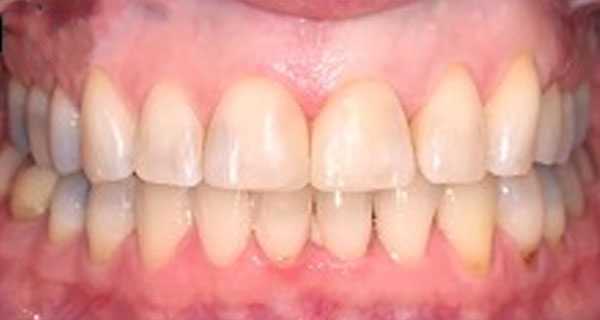Stress is an unavoidable part of life; it is our body’s reaction to any kind of change that requires an adjustment or response, going back to work after a holiday can bring these feelings on as our workload piles up again.
Below are a few ways stress impacts our teeth as well as ways we can help reduce these effects of stress on our oral health.
Bruxism (Teeth Grinding)
One of the most common ways that stress affects oral health is through teeth grinding, medically known as bruxism. Unfortunately, many people suffer from teeth grinding when they are stressed, anxious, or even while they are sleeping without even realising it. The constant pressure and grinding can lead to worn-down enamel, fractured teeth, and even jaw pain. Dentists often recommend getting a custom-made mouthguard to wear at night to protect your teeth from the damaging effects of bruxism. Be mindful of clenching your jaw during the day and try to relax your facial muscles.
Canker Sores and Cold Sores
Stress weakens the immune system, making you more susceptible to infections, including oral ones. Canker sores, small painful ulcers that appear inside the mouth, and cold sores, caused by the herpes simplex virus, can flare up during stressful times. These sores can be uncomfortable and disrupt your oral health, requiring specific treatment to manage their symptoms.
Gum Disease (Periodontal Disease)
Chronic stress can weaken the body’s ability to fight off infections, which includes gum disease. Periodontal disease, distinguished by gum inflammation, bleeding, and tooth loss, can be made worse by stress. High stress levels can also affect the body’s natural healing process, making it more challenging to recover from gum disease treatments like scaling and root planning.
Dry Mouth
Stress can lead to a dry mouth, which might not seem like a significant concern, but it can have serious repercussions for oral health. Saliva plays a crucial role in maintaining the oral environment, including neutralising acids and preventing tooth decay. Drink plenty of water to keep your mouth moist. A dry mouth can lead to an increased risk of cavities and oral infections.
Neglecting Oral Hygiene
When under stress, people often neglect their self-care routines, including oral hygiene. Forgetting to brush, floss, or regularly attending your dentist for your dental check-ups can worsen existing dental problems or lead to new ones. It is essential to maintain consistent oral hygiene practices even during stressful times. Brush your teeth at least twice a day with fluoride toothpaste and a soft-bristle toothbrush and remember to floss daily to remove food particles and plaque between your teeth and along the gumline. You should also consider using an antiseptic mouthwash to help reduce bacteria in your mouth as well as replacing your toothbrush regularly, ideally every three to four months or when the bristles show signs of wear.
Dietary Changes
Stress can also influence our dietary choices. People under stress may turn to sugary or comfort foods as a coping mechanism, which can contribute to tooth decay and other oral health issues. Avoid excessive caffeine, sugar, and alcohol consumption as they can exacerbate stress and negatively impact your oral health. Eat a balanced diet rich in fruits, vegetables, lean proteins, and whole grains to support your immune system and oral health. A balanced diet and mindful eating habits are crucial for maintaining oral health during stressful periods.
Tension and TMJ Disorders
High levels of stress can contribute to muscle tension and temporomandibular joint (TMJ) disorders. This can result in jaw pain, headaches, and difficulty in opening and closing the mouth properly. Stress management techniques and relaxation exercises can help alleviate these symptoms. Meditation, deep breathing exercises, and yoga can help reduce stress levels and relax your body, including your jaw and facial muscles. Regular physical activity is an effective way to relieve stress and improve overall health.
Ways To Reduce Stress & Anxiety
Other ways we can help reduce stress and anxiety are:
Getting Enough Sleep
When you’re sleep-deprived, your body produces more stress hormones, which can worsen oral health problems that are already there. Aim for 7-8 hours of sleep each night.
Exercise Regularly
Exercise helps to reduce stress levels and increases dopamine and serotonin which in all helps to improve your overall health, including your oral health. Aim for at least 30 minutes of moderate intensity exercise most days of the week.
Manage Your Time Effectively
Feeling overwhelmed can lead to stress, so it’s important to learn how to manage your time effectively. This means setting realistic goals and prioritising your tasks.
Regular Dental Check-ups
Schedule and attend regular dental check-ups and cleanings. Your dentist can detect and address any oral health issues early. It is recommended to see your dentists every 6 months for a general check up and clean to maintain a healthy smile.
Limit Smoking and Alcohol
Smoking and excessive alcohol consumption can worsen the effects of stress on oral health. Consider quitting smoking and reducing alcohol intake.
Seek Professional Help
If stress is overwhelming and negatively affecting your overall health, consider seeking help from a mental health professional, such as a therapist or counsellor, to manage stress effectively.
Final Thoughts
Remember that stress management is essential for both your mental well-being and oral health. By incorporating these practices into your daily routine, you can reduce the negative impact of stress on your oral health and maintain a healthy smile.
Book An Appointment


